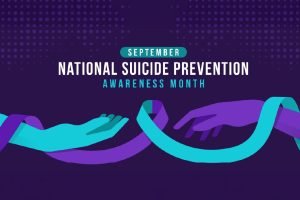Before understanding my own toxic patterns rooted in childhood trauma, I unknowingly had toxic relationships—with myself and those around me. Now, in steady recovery from CPTSD, I’m aware of how past trauma shaped these patterns and recognize how they harmed not only me but also people I cared about.
At times, I used manipulative tactics to get what I wanted from my partner. Admitting this isn’t easy, but it’s part of my healing. Sadly, I’ve seen many others do the same, often worse. I’ve watched men, in particular, suffer silently in Toxic Abusive Relationships, often driven to drastic changes like substance abuse, weight gain, isolation, and mental health struggles—all stemming from the covert emotional abuse they endure daily.
A close friend recently went through a bitter divorce after seven years of marriage. For most of their relationship, he lived under his partner’s control, and once he finally left, she began using their children to punish him. When they first met, she was funny, intelligent, and captivating—he fell in love, believing they’d be a strong team. But over time, she changed.
She constantly criticized him, claiming he didn’t earn enough, didn’t spend enough time with her, or failed to do things “right.” Arguments became daily occurrences, with him feeling perpetually inadequate. She eventually stopped showing affection and insisted they move in with her parents, isolating him even further. Soon, she demanded he delete his social media accounts and cut ties with friends and family, leaving him entirely dependent on her.
To keep the peace, he complied with her every demand, even loaning money to her parents to avoid arguments. Her unpredictable behavior left him walking on eggshells, never knowing when he’d be verbally attacked or belittled. His mental health deteriorated as he gained weight, began drinking, and lost his sense of self-worth.
After the divorce, she became even more hostile, turning their children against him. He had been in a relationship with a covert narcissist, an emotionally abusive partner who left him depressed and, at times, suicidal. Unfortunately, he still has to deal with her due to shared custody of their kids.
Men like my friend often suffer in silence. Society rarely speaks about men who face toxic abusive relationships or provides resources tailored to them. Yet, every one of us knows at least one man who has been, or still is, a victim of emotional abuse.
In emotionally abusive relationships, men may experience:
- Humiliation, belittlement, and a constant sense of inadequacy.
- Isolation from friends and family.
- Pressure to comply with their partner’s every demand.
- Alienation from their children.
- Anxiety, depression, and sometimes suicidal thoughts.
- Destructive coping behaviors like alcohol, drugs, or gambling.
- Loss of self-esteem and a distorted sense of self.
- Sleep issues and other mental health issues.
What Can Men Do?
It’s challenging for men to speak up about emotional abuse. Men also need accessible resources and acknowledgment. Emotional abuse can be as damaging as physical abuse, sometimes even more so because it leaves no visible scars. Many men endure years, even decades, of emotional abuse, leaving them feeling helpless and alone.
If you think someone you know may be suffering, reach out. I spoke to my friend multiple times, encouraged him to seek trauma-certified therapy, and introduced him to a supportive network. Today, he’s remarried, expecting a child, and has found peace. He recently expressed his gratitude, saying that getting help saved him.
Support for Those in Toxic Abusive Relationships
STAR Network offers free, neuro-regulated, peer-to-peer support through TAR Anon™ for anyone struggling with toxic abusive relationships. These safe spaces provide critical support, complementing therapy and empowering participants to heal and rebuild. While not a replacement for professional therapy, these meetings enhance the healing journey and help individuals rediscover their self-worth.
You Are Not A Victim, You Are A STAR!
If you’re questioning your relationship or feeling lost, know you’re not alone. STAR Network has created a supportive space called TAR Anon™ where you can find the guidance you need. We believe everyone deserves a chance to heal, grow, and transform.
STAR Network’s mission is awareness, transformation, and self-love. Through our support meetings, community, and resources, we help Survivors of Toxic Abusive Relationships (STARs) on their journey to healing.
Ready to take the first step? Join us in our movement, donate, or simply stand with us. There is hope, and there is healing.
Remember—you deserve to shine, because you are a STAR!







